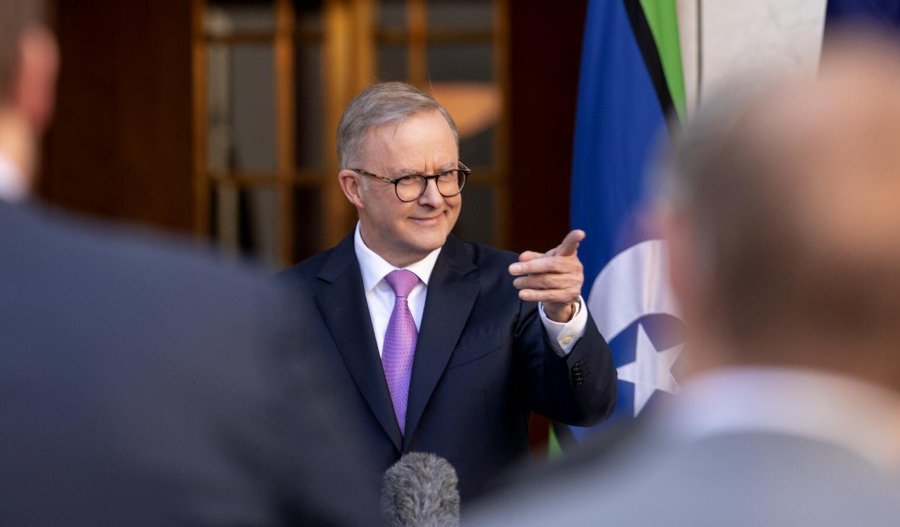Australian Prime Minister Anthony Albanese has confirmed that his new ministry will be sworn in next Tuesday, following a Labor Caucus meeting on Friday.
"I'm going to have a swearing-in of ministers next Tuesday morning … is the tentative proposal," Albanese told the ABC's 7.30.
The weekend will be crucial for finalising key appointments, with roles such as assistant treasurer and NDIS minister still undecided. His decision will set the tone for the government’s policy direction as it navigates economic challenges and global trade shifts.
"No individual is greater than the collective," Albanese later told Sky News.
Watch: Albanese has seen off both his biggest adversaries in Dutton and Bandt
"That includes myself, and we need to approach this term with humility to make sure that we deliver on the commitments that we made to the Australian people, but also that we operate in a way which shows solidarity," he said.
One of the most closely watched portfolios is trade, where outgoing minister Don Farrell has expressed eagerness to advance multiple negotiations. Farrell revealed that European leaders reached out immediately after the election, keen to revive talks on an E.U. Free Trade Agreement, which would grant Australia access to a $17 trillion market with 450 million consumers. Progress on this front could offer critical trade opportunities, particularly as geopolitical tensions shape economic alliances.
Farrell said: “On election night, I got messages from my European colleagues, they're very keen to re-engage and have another crack at an E.U. Free Trade Agreement [with the EU having] 450 million people, $17 trillion economy.”
"They'll be very important if we can get a breakthrough there," he told News Breakfast.
Australia’s trade ambitions extend beyond Europe, with India signaling its readiness to finalise a long-awaited free trade deal. Farrell is confident that talks will progress swiftly, underscoring the economic significance of strengthened bilateral trade. Additionally, Australia’s free trade agreement with the United Arab Emirates is set to take effect in the coming weeks, eliminating tariffs on Australian exports to the U.A.E. and enhancing market access.
Trade discussions with the United States also remain on the agenda. Farrell emphasised that Australia’s approach to trade is rooted in "free and fair commerce", and that his government will continue to push for stronger economic ties with Washington. With global supply chain dynamics evolving, ensuring alignment with major trading partners remains a priority for Australia’s economic strategy.
As Albanese prepares to assemble his new ministry, the government is balancing domestic policymaking with a fast-moving global trade landscape. The upcoming decisions on key ministerial appointments will have far-reaching implications for Australia’s economic positioning, particularly as it strengthens ties with Europe, India, the U.A.E., and the U.S. Investors will be watching closely as new leadership shapes the country's approach to trade and economic policy.



